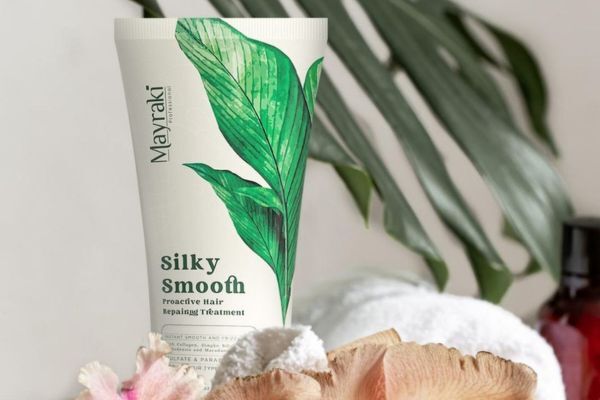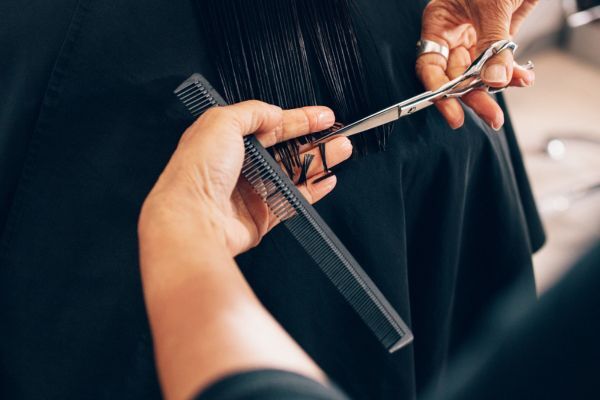How to Protect Your Hair from Chlorine and Saltwater
May 14, 2025 | By Maria Eliza Pineda

Swimming is one of the most beloved activities especially during summer. Aside from being a fun pastime, it has many health benefits like strengthening the body and reducing stress. However, swimming also comes with risks especially for our hair.
Many swimmers experience dryness, brittleness, and discoloration due to prolonged exposure to chlorine and saltwater. Because of this, it's essential to learn effective ways to maintain hair protection from chlorine and saltwater so you can keep your hair healthy, shiny, and strong even with frequent swimming.
How Chlorine and Saltwater Damage Hair
Chlorine is a chemical commonly used in swimming pools to keep the water clean. Unfortunately, when it comes into contact with your hair, it strips away your scalp’s natural oils which serve as protection. Without these natural oils, hair becomes dry, frizzy, and prone to breakage. In addition, chlorine can dull or alter hair color, especially for dyed or chemically treated hair.
Meanwhile, salt from seawater naturally dehydrates hair. As a result, hair becomes coarse, tangled, and hard to comb after swimming. These effects are even worse for bleached or chemically processed hair, as it becomes more vulnerable to moisture loss and split ends.
Pre-Swim Hair Protection Tips

Wet Your Hair with Clean Water First
Before jumping into the pool or ocean, it’s important to soak your hair with fresh water. Dry hair is like a sponge, it easily absorbs and salt. By wetting it beforehand, you reduce the amount of harmful substances your hair can absorb.
Apply Natural Oils as Protection
One of the most effective natural hair care for swimmers is applying coconut oil or olive oil before swimming. These create a protective barrier that helps block chlorine and salt from penetrating the hair. Plus, they provide extra moisture and nourishment.
Use a Leave-In Conditioner or Hair Mask
Using a leave-in conditioner or hair mask specifically made for swimmers is also recommended. These products provide extra hydration and shield the hair while you're in the water, helping to prevent dryness and breakage. Make sure to really saturate your hair to protect each strand.
Wear a Swim Cap
Wearing a swim cap is one of the most practical ways to minimize direct exposure to chlorine and salt. Even if you're not a competitive swimmer, using a swim cap is a smart preventive measure.
Proper Post-Swim Hair Care Routine
Rinse Your Hair Immediately
After swimming, don’t let chlorine or salt stay on your hair for long. Rinse it right away with clean water to remove the chemicals and prevent further damage. This is also applicable when you saturate your hair with an oil or conditioner before swimming. Make sure to rinse right after you get out of the water.
Use a Sulfate-Free Shampoo
Regular shampoos often contain sulfates that can dry out your hair even more. Add this to chlorine and saltwater, it can really make the hair feel rough and brittle. A gentle, sulfate-free shampoo is best for cleansing, it can clean the hair without stripping away its remaining moisture.
Apply a Deep Conditioning Treatment
Deep conditioning helps restore lost moisture and softness caused by chlorine and salt exposure. Choose a product with natural ingredients to maintain healthy hair in a safe and nourishing way.
Avoid Heat Styling for a While
After swimming and treating your hair, it's best to avoid using blow dryers, flat irons, or curling irons. Heat styling can add more stress to already weakened hair, so give your strands time to recover.
Mayraki’s Natural Solution for Damaged Hair

The Mayraki Silky Smooth Proactive Hair Repairing Treatment is an all-natural solution to dry, damaged hair. It repairs your hair’s cuticle from the inside out, naturally improves your hair’s health, and leaves it shiny, smooth, and strong. Targets both the hair and scalp’s health and produces instant results. Perfect for those who love swimming and are spending a lot of time in the water!
Ingredients That Help Repair Hair
Collagen Amino Acids
When your hair gets damaged, it becomes more and more porous, brittle, and weak. Some hair textures are also naturally more porous than others. The amino acids in collagen help to reduce that porousness by promoting keratin production. Keratin, an essential hair protein, gives the locks a thicker, smoother texture and makes the hair much stronger.
Camellia Reticulata Seed Oil
Camellia oil comes from the beautiful white camellia flowers originating in Japan and Indonesia. The oil extracted from this flower is packed with omega 9 fatty acids. Omega 9 fatty acids are something that your body creates on its own which makes this fatty acid extremely compatible with your body chemistry. Because it is so similar to the oil that the body naturally produces, it absorbs more effectively than other oils and will keep your hair and scalp moisturized without making it feel greasy or cause buildup.
Ginkgo Biloba Leaf
Ginkgo biloba has been used in traditional Asian medicine for centuries. For the hair, it’s known for increasing hair growth by improving the blood circulation in the scalp. Good circulation in the scalp means that there is more oxygen for the hair to absorb. This promotes faster hair regrowth and stronger, shinier hair.
Aloe Vera
Aloe vera is a well-known remedy for lots of skin and hair issues. It’s been proven to boost hair’s shine and strength with its moisturizing and emollient properties. Aloe vera is also exceptionally beneficial for the scalp because of its anti-inflammatory and anti-fungal properties. It helps eliminate dandruff, irritation, and flakiness, helping the hair grow in a much better environment.
Rosa Rugosa Flower
Rosa Rugosa or Rose Flower Extract is used to provide extra nourishment to the strands of your hair. It makes your locks thicker, more voluminous, and hydrated. It also has regenerative effects that help to restore your hair’s health and heal any damage done. Rose flower extract can also combat skin irritations and inflammation.
Hydrolyzed Wheat Protein
Hydrolyzed Wheat Protein is another powerhouse ingredient when it comes to overall hair nourishment. Protein is what your hair is in dire need of if it’s severely damaged and hydrolysis is a process that breaks down certain chemicals and ingredients to make it more effectively absorbed by the body. Hydrolyzed wheat protein helps to lessen porosity, thicken the strands and add volume to the hair, it makes the hair shiny, strong, and repairs the damaged cuticle.
How to Incorporate Mayraki into Your Routine
It’s easy to include this product in your post-swim hair care routine. Use it as a deep conditioner after rinsing your hair. Apply the product 2–3 times a week to maintain softness, moisture, and shine. Because it uses all-natural ingredients, it’s safe for daily use.
Additional Tips for Maintaining Healthy Hair

Get Regular Trims
Trimming your hair regularly helps prevent split ends and keeps your hair looking fresh and healthy. This is especially important for those who swim frequently.
Stay Hydrated
Your hydration levels affect your hair. If your body is dehydrated, your hair becomes dry too. Make sure to drink enough water every day to support healthy hair from within.
Eat a Balanced, Nutritious Diet
A diet rich in biotin, zinc, and vitamin E contributes to stronger, shinier hair. Healthy eating is a foundation for healthy hair growth.
Limit Sun Exposure
When you're at the beach or pool, wear a hat or stay in shaded areas to protect your hair from the harsh sun. UV rays can cause brittleness and fading, especially in color-treated hair.
Unleash Your Inner Mermaid
Swimming should be a joyful experience and not a reason for hair damage. With the right knowledge and care, you can avoid the harmful effects of chlorine and saltwater. Hair protection from chlorine and saltwater starts with simple but effective habits like pre- and post-swim care and using products like Mayraki Silky Smooth Proactive Hair Repairing Treatment, which are natural and safe for everyday use.




